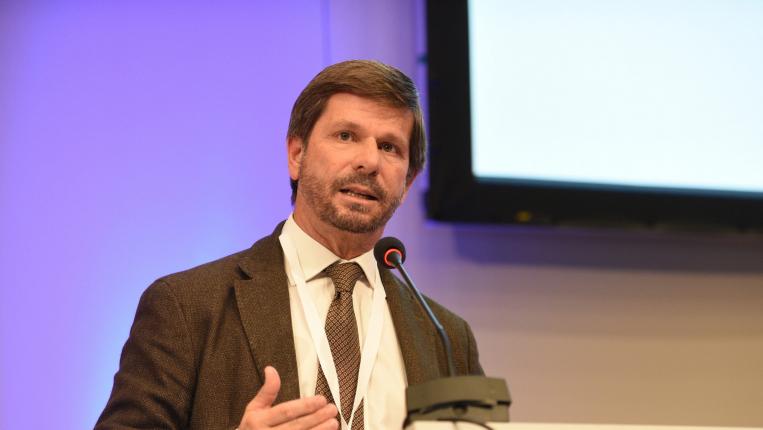The Católica Medical School is born out of this current context of great innovation and revolution in Medical education. The need for innovative teaching emerges from several factors:
- The significant change in population demographics, which will deeply affect epidemiology in the 21st century;
- The volume and wealth of data and analysis capacity made available by new computer technologies;
- The growing internationalization of the labour market.
It is our commitment to train health professionals capable of meeting these challenges, through:
- A curriculum consisting of integrated functional modules which are powered by the relevant medical disciplines;
- Different teaching methods centered on student (predominantly the Problem-based Learning - PBL) that allow:
- Promotion of self-learning, collaboration and group discussion;
- Promotion the involvement of students in their learning;
- The transversal activity of the portfolio, which enables the integration of knowledge through reflection on experiences.
- Skills training such as:
- Doctor-patient and peer communication;
- Technical procedures;
- Interpretation of imaging methods.
- The high teacher-student ratio guarantees both a greater individual participation and integration in clinical teams:
- A maximum of 10 students in seminar groups;
- A maximum of 2 students per team in clinical internships.
- All teachers will receive training in the curriculum and teaching methods and will be regularly assessed by their peers and students.
The success of this teaching approach is guaranteed not only through the collaboration with Maastricht University, but also through the interdisciplinary wealth available within Universidade Católica Portuguesa itself, in the Health Sciences but also extending Internal interdisciplinary collaborations with the Faculdade de Ciências Económicas e Empresariais (where projects in the area of health are already taking place), the Faculdade de Ciências Humanas (particularly in Linguistics), or the Faculdade de Teologia (essential for the ethical approach to Medicine).
The resources are equally critical to ensuring the success of our Medical School:
- A building specifically adapted to Medical training containing individual and group study spaces equipped with all the technological needs;
- The biomedical research centre occupies one-third of the building and is entirely dedicated to research. Following the evolution of 21st century epidemiology, this centre will dedicate itself to studying basic and translational research in the physiopathological mechanisms of chronic illnesses as well as the study of intelligence;
- Clinical training will reap the benefits of the partnership with the Grupo Luz Saúde. This large Group includes a great variety of health institutions where are included tertiary hospitals equipped with cutting edge technology, public hospitals, clinics within the community and a strong primary health component. This variety enables a strong element of primary care training, taking Medical training into the community.
These remarkable conditions enable the creation of an innovative Medical School, able to train health professionals equipped to face the challenges of the 21st century.



